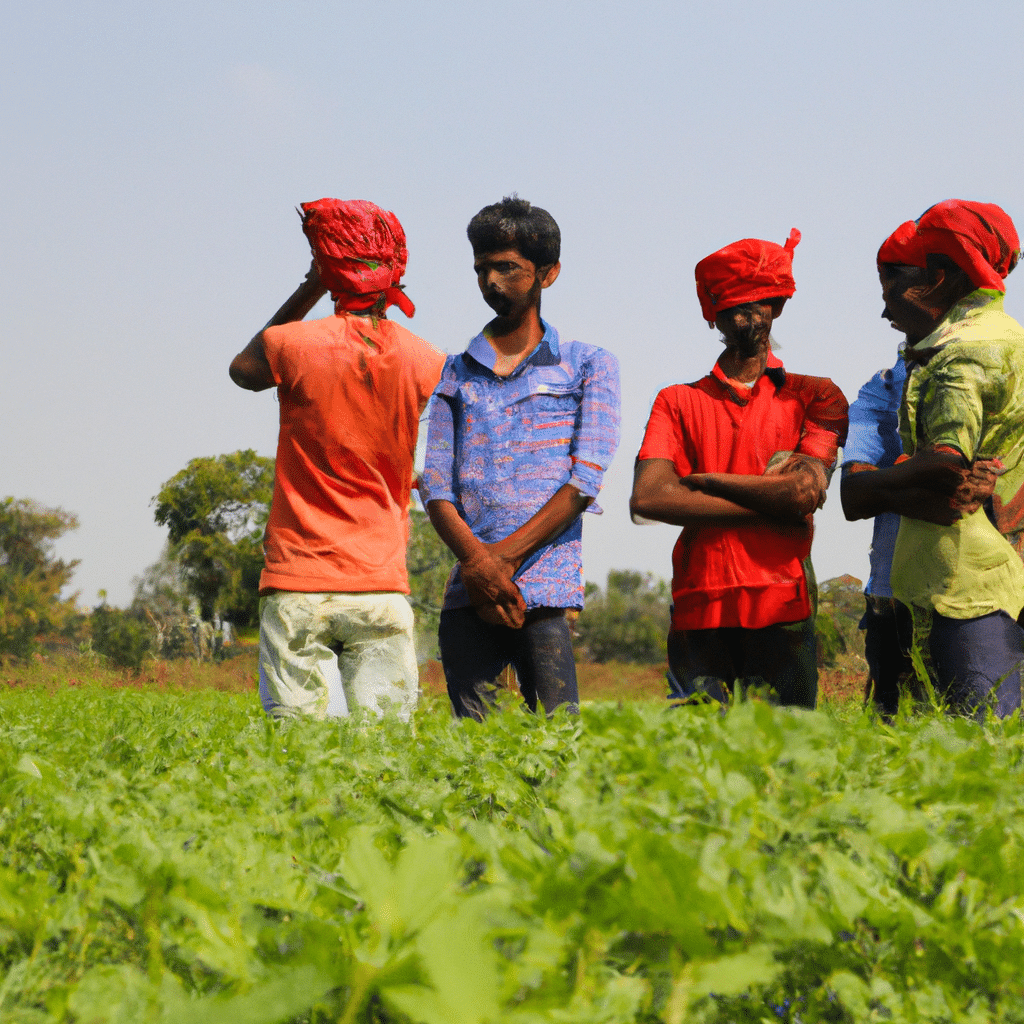At the heart of every community lies a group of individuals who dedicate their lives to cultivating the land and nourishing the people. These unsung heroes, known as farmers, play a crucial role in our society by providing us with the food we need to survive. While the image of a farmer may conjure up thoughts of a weathered, older individual, there is a new generation of young farmers who are breaking stereotypes and making a remarkable impact on their communities. In this article, we will delve into the inspiring stories of these young farmers who are not only tending to their crops but also revitalizing the agricultural landscape and fostering positive change.

The Rise of Young Farmers
Over the past decade, there has been a noticeable rise in the number of young individuals choosing a career in farming. This shift can be attributed to various factors, such as a growing interest in sustainable agriculture, the desire to connect with nature, and a passion for promoting local food systems. These young farmers bring fresh perspectives, innovative ideas, and a deep commitment to environmental stewardship.
Embracing Sustainable Practices
One of the defining characteristics of young farmers is their dedication to sustainable farming practices. Recognizing the long-term consequences of conventional farming methods, these individuals prioritize environmentally friendly approaches that minimize the use of harmful chemicals and prioritize soil health. From implementing crop rotation and cover cropping techniques to managing livestock with holistic grazing practices, these farmers are paving the way for a more sustainable future.
Empowering Local Communities
Beyond their agricultural endeavors, young farmers are actively involved in empowering their local communities. They understand the importance of building strong relationships with consumers and strive to create a direct connection between the food they grow and the people who consume it. Through farmers’ markets, community-supported agriculture (CSA) programs, and farm-to-table initiatives, these individuals are revitalizing local economies and fostering a sense of community.
Education and Mentorship
Young farmers are not only focused on their own success but are also passionate about sharing their knowledge and skills with others. Many of them actively engage in educational programs and mentorship opportunities, aiming to inspire and empower the next generation of farmers. By offering workshops, internships, and apprenticeships, they ensure that the knowledge and expertise accumulated over generations are passed down to future farmers.
Overcoming Challenges
While the journey of a young farmer is undoubtedly rewarding, it is not without its challenges. Limited access to land, high startup costs, and a lack of infrastructure pose significant hurdles for these individuals. However, their determination and resilience enable them to overcome these obstacles, often through creative solutions such as land-sharing agreements, cooperative farming models, and community-backed financing.
Impact on Food Security
The efforts of young farmers have far-reaching implications for food security. By prioritizing local food production, they reduce the reliance on long-distance transportation and contribute to a more resilient and sustainable food system. Additionally, their focus on organic and regenerative farming practices enhances the nutritional quality of the produce, promoting healthier diets and overall well-being.
Conclusion
The stories of these young farmers exemplify the transformative power of passion, innovation, and community engagement. They not only cultivate crops but also cultivate hope, resilience, and a brighter future for generations to come. As we celebrate their accomplishments, it is essential to recognize and support these young farmers, for they are the stewards of our land and the architects of a more sustainable and inclusive agricultural landscape. Let us embrace their inspiring tales and work together to create a world where farming thrives, communities flourish, and everyone has access to wholesome, locally grown food.



